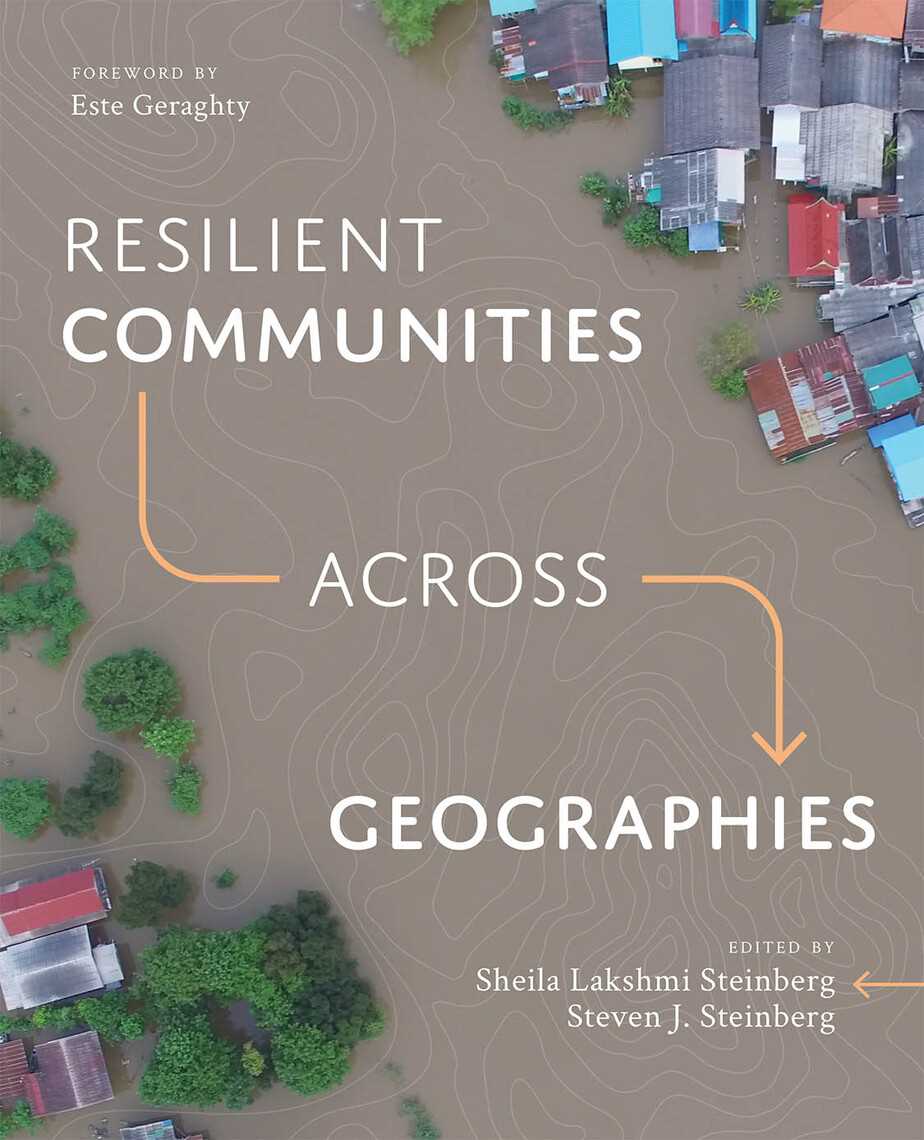
In the captivating memoir The Glass Castle, author Jeannette Walls takes readers on a remarkable journey through her tumultuous upbringing. Walls recounts her experiences growing up in a family that was constantly grappling with adversity and survival. Through her poignant storytelling, Walls explores the themes of hope, resilience, and the fragile nature of the human spirit.
The metaphorical "glass castle" in the title represents the dreams and aspirations of the Walls family. Despite their impoverished and chaotic lifestyle, the Walls children are raised with a sense of hope and possibility. This hope becomes a powerful force that drives them to endure the immense stress and challenges they face.
Stress is a pervasive presence throughout the memoir, as the Walls family navigates through poverty, neglect, and emotional instability. The constant uncertainty and lack of stability create a challenging environment, testing the limits of the family's resilience. Yet, amidst the chaos, the Walls family demonstrates an unwavering determination to survive and overcome their circumstances.
Resilience emerges as a central theme in The Glass Castle, highlighting the incredible strength of the human spirit. Jeannette Walls and her siblings learn to adapt and persevere in the face of overwhelming adversity. Their ability to find hope and strength in the most difficult situations is a testament to the power of resilience.
Through her candid and introspective storytelling, Walls invites readers to reflect on their own experiences with stress and resilience. She challenges us to examine how these factors shape our lives and influence our ability to navigate the complexities of the world. The Glass Castle serves as a poignant reminder that, even in the face of seemingly insurmountable challenges, the human spirit has the capacity to endure, grow, and thrive.
The Role of Stress
In The Glass Castle, stress plays a central role in the lives of the Walls family. Growing up in a dysfunctional and impoverished household, the Walls children are constantly exposed to the glass castle of their parents' lofty dreams and the harsh realities of their daily existence. This constant state of stress shapes their experiences and emotions, highlighting the importance of resilience and hope in their journey of survival.
Stress is a powerful force that can drive individuals to their limits, and the Walls family is no exception. The constant uncertainty of their living situation, the emotional and physical abuse they endure, and the constant struggle to meet their basic needs all contribute to their stress levels. This stress can manifest itself in various ways, from feelings of anxiety and fear to anger and frustration.
However, despite the overwhelming stress they face, the Walls family also demonstrates remarkable resilience. They find ways to cope with their situation, relying on their creativity, intelligence, and determination. This resilience allows them to navigate the challenges they encounter and find moments of hope and joy amidst the chaos.
Emotionally, stress can have a profound impact on individuals, and this is evident in the Walls family. The constant stress they experience leads to a range of emotions, from sadness and despair to anger and defiance. These emotions shape their relationships with each other and their perception of the world around them.
Ultimately, stress serves as a driving force in The Glass Castle, highlighting the strength and resilience of the Walls family. Despite the challenges they face, they are able to find hope and survival in the midst of adversity. Through their experiences, the novel explores the complex relationship between stress, resilience, and the human spirit.
The Influence of Adversity

Stress and adversity play a central role in the lives of the Walls family, as depicted in Jeanette Walls' memoir, "The Glass Castle." The Walls family constantly faces challenging situations, both emotionally and physically, which shape their lives and relationships.
The glass castle, a symbol of the family's dreams and hopes, represents the constant struggle and stress they endure. Just as the glass castle is fragile and unstable, so too are the Walls family's lives. Their constant state of uncertainty and survival mode creates a high level of stress and anxiety.
Emotionally, the Walls family experiences a rollercoaster of emotions due to their adverse circumstances. From fear and anger to hope and determination, their emotions are constantly tested. The stress and adversity they face challenge their ability to cope and adapt, often leading to emotional breakdowns and conflicts within the family.
However, despite the overwhelming adversity they encounter, the Walls family demonstrates remarkable resilience. Their ability to bounce back and find strength in the face of adversity is a testament to the human spirit. They learn to adapt to their circumstances, finding creative solutions to survive and navigate their challenging lives.
Family dynamics also play a significant role in the influence of adversity. The Walls family's shared experiences and hardships create a unique bond that strengthens their resilience. They rely on one another for support and comfort, forming a tight-knit unit that helps them overcome the obstacles they face.
Overall, the influence of adversity in "The Glass Castle" highlights the immense impact stress and resilience have on individuals and families. It showcases the human capacity to endure and overcome even the most challenging circumstances, emphasizing the importance of resilience in the face of adversity.
Emotional and Psychological Strain
The Glass Castle explores the emotional and psychological strain that comes with survival in the face of extreme adversity. The Walls family, living in a glass castle of their own making, experiences constant stress and upheaval, which takes a toll on their emotional well-being.
Throughout the memoir, the Walls children are forced to navigate a turbulent and unstable environment, constantly on the move and lacking basic necessities. This constant state of stress and uncertainty creates emotional strain, as they are unable to form stable relationships or find a sense of belonging.
Despite the challenges they face, the Walls children demonstrate remarkable resilience and hope. They find solace in their imagination and dreams, using these as a way to escape the harsh realities of their lives. However, this emotional strain is not easily overcome, and the scars of their past continue to impact their adult lives.
The glass castle itself serves as a metaphor for the emotional strain the Walls family experiences. Just as a glass castle is fragile and easily shattered, so too are the emotions and hopes of the family. The constant stress and instability they face make it difficult for them to maintain a sense of stability and security.
Ultimately, The Glass Castle highlights the lasting impact of emotional and psychological strain on individuals and families. It emphasizes the importance of resilience and hope in the face of adversity, while also acknowledging the long-lasting effects that such strain can have on one's emotional well-being.
Financial and Social Pressure

In "The Glass Castle," financial and social pressure play a significant role in the lives of the Walls family. The constant struggle for money and social acceptance adds to the overall stress and resilience of the family.
The Walls family constantly faces financial hardships, as they struggle to make ends meet and provide for their basic needs. This financial pressure creates a sense of uncertainty and instability in their lives. Their father, Rex, often prioritizes his own desires and dreams over the family's financial well-being, leading to a lack of stability and security. The constant fear of not having enough money to survive adds to the overall stress and resilience required to navigate their daily lives.
Additionally, the Walls family faces social pressure as they try to fit into societal norms and expectations. They are often judged and ostracized by others due to their unconventional lifestyle and lack of material possessions. This social pressure adds to their overall stress and resilience, as they constantly face criticism and judgment from others.
Despite the financial and social pressure they face, the Walls family demonstrates resilience and hope. They find ways to survive and make the best of their situation, relying on their own resourcefulness and creativity. Their determination and ability to adapt to their circumstances show their resilience in the face of adversity.
The metaphor of the "glass castle" represents the Walls family's hope and dreams for a better future. Despite their challenging circumstances, they hold onto the belief that they can overcome their struggles and build a better life for themselves. This hope and resilience serve as a driving force for the family, allowing them to persevere through the financial and social pressure they encounter.
In conclusion, the financial and social pressure faced by the Walls family in "The Glass Castle" contributes to the overall theme of stress and resilience. The constant struggle for money and social acceptance adds to the challenges they face, but their resilience and hope enable them to navigate through these pressures and strive for a better future.
Resilience in the Face of Challenges

Resilience is the ability to bounce back from adversity and continue moving forward, even in the face of overwhelming stress and emotion. In the memoir "The Glass Castle," Jeannette Walls portrays her family's incredible resilience as they navigate a tumultuous and unpredictable life.
Despite growing up in poverty and facing numerous challenges, Jeannette and her siblings demonstrate remarkable resilience. They learn to adapt to their circumstances, finding creative solutions to survive. Their ability to find hope in even the darkest moments is a testament to their unwavering determination.
The metaphor of the "glass castle" represents the Walls family's dreams and aspirations. Despite their difficult circumstances, they hold onto the belief that they can build a better life for themselves. This hope fuels their resilience, allowing them to persevere through the most trying times.
Throughout the memoir, Jeannette recounts the various instances of stress and adversity that the family faces. From their nomadic lifestyle to their parents' unconventional parenting methods, the Walls children are constantly challenged. However, they never lose sight of their goals, and their resilience enables them to overcome these obstacles.
Emotionally, the Walls family experiences a rollercoaster of highs and lows. From moments of joy and love to instances of fear and despair, their emotions are always on display. Yet, they never allow these emotions to consume them entirely. Instead, they use their resilience to process their feelings and continue moving forward.
Resilience is not a trait that comes easily; it requires strength and determination. The Walls family's ability to survive and thrive in the face of overwhelming stress and adversity is a testament to their incredible resilience. Their story serves as an inspiration to others, reminding us that even in the darkest of times, there is always hope.
Overcoming Obstacles
Throughout The Glass Castle, the Walls family faces numerous challenges and obstacles that test their resilience and ability to survive. Despite living in poverty and facing constant stress and adversity, the family manages to find hope and strength in their shared experiences.
The metaphor of the "glass castle" represents the dreams and aspirations of the Walls family. Despite their difficult circumstances, they refuse to give up on their dreams and maintain a sense of hope for a better future. This hope drives them to overcome obstacles and strive for a better life.
Resilience is a key theme in the book, as the Walls family demonstrates an incredible ability to bounce back from difficult situations. They face emotional and physical challenges, yet they find ways to adapt and survive. Their resilience is evident in their resourcefulness and determination to make the best out of their circumstances.
The Walls family's survival in the face of adversity is a testament to their strength and determination. They are constantly faced with poverty, hunger, and instability, yet they manage to find ways to survive. Their ability to endure and persevere through tough times is inspiring.
Stress and emotion are ever-present in the Walls family's lives. The constant uncertainty and instability create a high-stress environment. However, they learn to cope with their emotions and find solace in their family bonds. Despite the challenges they face, their love for each other and their shared experiences help them navigate the difficult times.
In conclusion, the Walls family's journey in The Glass Castle showcases the power of hope, resilience, and survival. Despite the stress and adversity they face, they overcome obstacles and find strength in their family bonds. Their story serves as a reminder that even in the face of immense challenges, it is possible to overcome and find hope.
Developing Coping Mechanisms

In the glass castle, the Walls family faces numerous challenges and adversities that test their resilience and ability to cope with stress. Despite the difficult circumstances they find themselves in, they develop various coping mechanisms to navigate through life.
One coping mechanism that the Walls family develops is finding hope in the midst of despair. Despite their chaotic and unstable upbringing, the children, especially Jeannette, hold onto the hope that things will get better. This hope acts as a driving force for them to keep going and strive for a better future.
Survival instincts also play a crucial role in the Walls family's coping mechanisms. Growing up in poverty and facing neglect from their parents, the children learn to fend for themselves and find ways to meet their basic needs. They become resourceful and learn to adapt to their circumstances, which helps them overcome the challenges they face.
The concept of the glass castle itself serves as a coping mechanism for the Walls family. Rex Walls, the father, constantly talks about building a magnificent glass castle for the family, which represents his dreams and aspirations. This dream acts as a source of motivation and escape from the harsh realities of their lives. Although the glass castle remains unrealized, it symbolizes the family's resilience and their ability to find solace and comfort in their imagination.
Another coping mechanism the family develops is relying on each other for support. Despite their parents' shortcomings, the Walls children form a strong bond and support system for one another. They lean on each other during times of stress and adversity, providing emotional support and encouragement. This familial support helps them navigate through their challenges and build resilience.
Overall, the Walls family's ability to develop coping mechanisms in the face of stress and adversity demonstrates their resilience and determination to overcome their circumstances. Through finding hope, relying on survival instincts, embracing the concept of the glass castle, and supporting each other as a family, they are able to navigate through the challenges they face and find strength in the midst of turmoil.
Finding Strength in Vulnerability

In the midst of the stress and adversity depicted in The Glass Castle, the characters in the memoir demonstrate remarkable resilience and strength. One of the recurring themes in the book is the notion that vulnerability can actually be a source of strength.
The Walls family, despite their chaotic and unconventional lifestyle, manages to find hope and survival in the face of constant challenges. Through their experiences, the author shows how vulnerability can lead to personal growth and the development of resilience.
One of the key aspects of vulnerability explored in the memoir is the expression of emotion. The Walls family members are not afraid to show their true feelings, even in situations of extreme stress. This openness allows them to connect with each other on a deeper level and find solace in their shared experiences.
The metaphor of the castle in the title symbolizes the Walls family's ability to create a sense of security and strength within themselves, even in the face of external adversity. Just as a castle is built to withstand attacks, the Walls family builds their resilience through their shared experiences and unwavering hope.
By embracing vulnerability, the characters in The Glass Castle are able to find strength and resilience in the face of overwhelming obstacles. Their ability to confront their emotions and face their fears allows them to grow and adapt to their circumstances, ultimately leading to their survival.
| Stress | Resilience | Castle | Emotion | Adversity | Family | Hope | Survival |
|---|
The Interplay of Stress and Resilience
Within the pages of The Glass Castle, the interplay between stress and resilience is evident throughout the Walls family's journey. Despite the constant adversity they face, the Walls family demonstrates an incredible amount of resilience, which allows them to navigate their challenging circumstances with hope and determination.
The metaphor of the glass castle represents the fragility and instability of the Walls family's situation. The glass castle is a symbol of their dreams and aspirations, but it is also a reminder of the constant stress and uncertainty they experience. However, it is through their resilience that they are able to survive and overcome these challenges.
Resilience is a powerful emotion that enables individuals and families to bounce back from difficult situations. It is the Walls family's resilience that allows them to find hope and strength in the face of adversity. Despite their impoverished upbringing and the constant instability in their lives, they never lose sight of their dreams and aspirations.
The Walls family's resilience is deeply rooted in their strong sense of family and their unwavering love for one another. Throughout their journey, they rely on each other for support and comfort, creating a bond that helps them survive even the most challenging circumstances. This sense of family and connection gives them the resilience they need to push forward and overcome the obstacles they face.
Ultimately, the interplay of stress and resilience is a central theme in The Glass Castle. The Walls family's ability to navigate their challenging circumstances with resilience and hope is a testament to the power of the human spirit. Despite the glass castle shattering around them, they continue to find strength and resilience, proving that survival is possible even in the most difficult of situations.
The Impact on Mental Health

In The Glass Castle, the walls of the dysfunctional family's glass castle symbolize the fragility of their mental health. The constant stress and adversity faced by the Walls family takes a toll on their emotional well-being. The lack of stability and security in their lives leads to a heightened sense of anxiety and a struggle to cope with their circumstances.
Despite the challenges they face, the family members cling to hope and resilience, using their experiences as a source of strength. However, the constant stress they endure can manifest in various ways, impacting their mental health. Jeannette Walls, the author, describes the emotional rollercoaster she and her siblings experience, from fear and uncertainty to moments of joy and hope.
Their upbringing in a chaotic and unpredictable environment leaves a lasting impact on their mental health. The constant state of stress and the inability to rely on their parents for emotional support lead to feelings of isolation and vulnerability. The emotional neglect they experience further exacerbates their struggles with mental health.
However, despite the challenges they face, the Walls family demonstrates remarkable resilience. They find ways to cope with their stress and adversity, developing a strong sense of self and a determination to overcome their circumstances. Through their shared experiences, they form a bond that provides a source of support and understanding.
The Glass Castle sheds light on the lasting impact of stress and adversity on mental health. It emphasizes the importance of resilience and hope in navigating challenging circumstances. The Walls family's story serves as a reminder that even in the face of extreme adversity, there is always room for growth, healing, and the possibility of a brighter future.
Building Resilience through Stressful Experiences

Stressful experiences can often be overwhelming, causing a whirlwind of emotion and uncertainty. In Jeannette Walls' memoir, The Glass Castle, the Walls family navigates a life filled with adversity, constantly being tested by their circumstances. However, it is through these stressors that resilience is built, as they learn to adapt and grow.
Resilience is like a castle made of glass, fragile yet strong. It is the ability to bounce back from difficult situations and find hope in the midst of adversity. The Walls family embodies this resilience, as they face countless challenges, yet never lose sight of their survival and dreams.
The Glass Castle, the Walls family's metaphorical dream home, represents their unwavering hope and determination. It symbolizes their resilience, as they strive to create a better life for themselves despite the obstacles they face. The castle is a reminder that even in the face of adversity, there is always a glimmer of hope.
Through the Walls family's experiences, we see how resilience is built. They are constantly faced with stressful situations, whether it's their nomadic lifestyle, lack of financial stability, or their parents' unconventional parenting methods. However, instead of succumbing to despair, they find strength in each other and in their shared experiences.
Family plays a crucial role in building resilience. The Walls family's bond is unbreakable, and they rely on each other for support and encouragement. They find solace in their shared experiences and use them as a foundation for their resilience. Together, they weather the storms of life and emerge stronger on the other side.
Surviving stressful experiences also requires a shift in perspective. The Walls family learns to see their difficulties as opportunities for growth and self-discovery. They embrace the challenges they face, knowing that it is through these experiences that they will become stronger and more resilient.
Ultimately, the Walls family's journey teaches us that resilience is not something we are born with, but rather something we develop through our experiences. It is a quality that can be cultivated and strengthened. By facing adversity head-on, finding hope in the darkest of times, and relying on the support of loved ones, we can build our own castle of resilience.

I am Patrina de Silva, a psychologist and mental health blogger in Sri Lanka. After obtaining psychology degrees from the University of Colombo and Monash University, I returned home to work as a counselor while also starting the popular blog “Pressy but Happy” to provide advice on psychological issues. Over the past decade, my empathetic articles have made my blog a leading mental health resource in the country. In addition to writing, I maintain a private therapy practice, frequently volunteer counseling time, and conduct seminars, driven by my passion for destigmatizing mental illness and educating the public on the mind-body connection. I strive to be an influential voice in my field through my compassionate approach.
